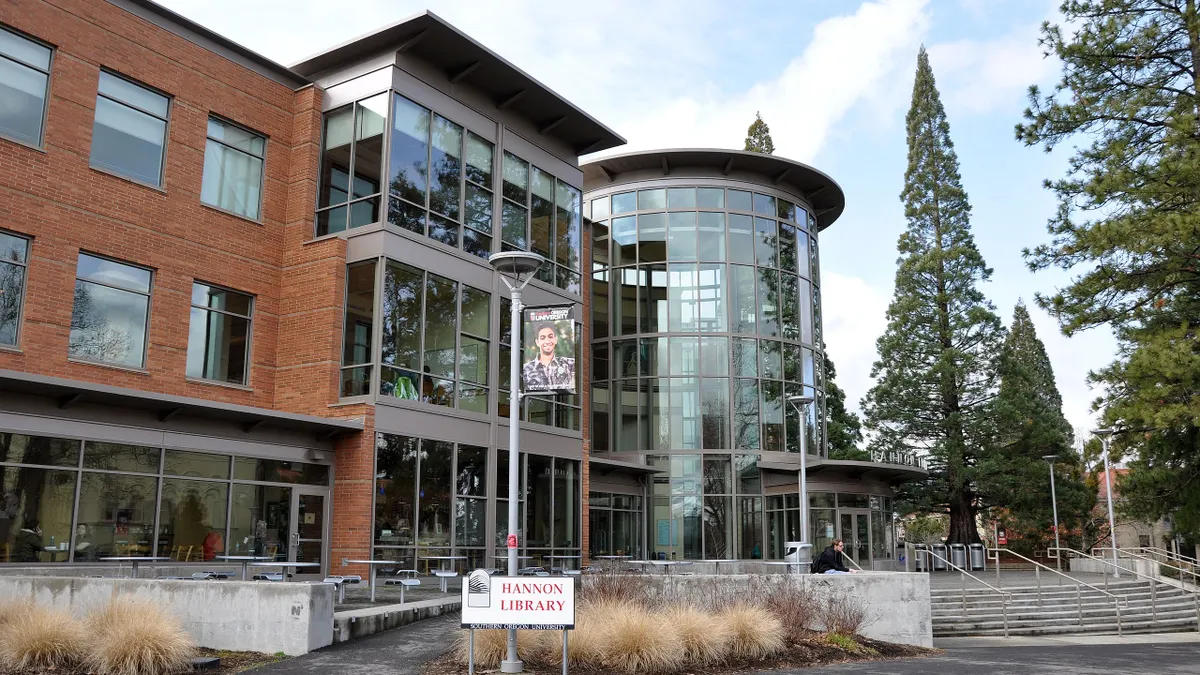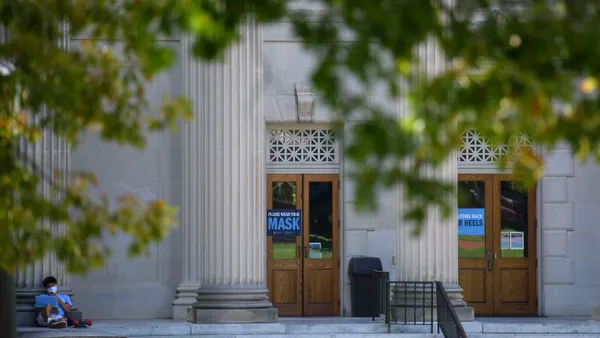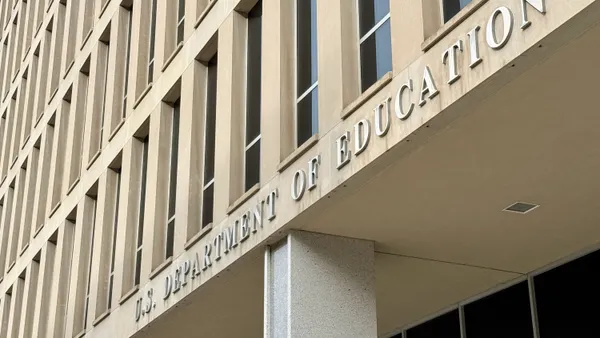Dive Brief:
- Cornell University leaders expect to begin restructuring the institution’s operations and workforce in phases beginning late this year and continuing into 2026.
- In a community update Friday, senior leaders echoed a June message warning of job cuts. “Reducing costs will mean reconsidering how we handle all of our processes, from procurement to technology, and rethinking, in fundamental ways, how we allocate our resources,” they said Friday. “It will also, inevitably, mean reducing our workforce.”
- The officials cited inflation, historical staff growth, contractions in federal funding, “significant legal and regulatory expenses,” and “an uncertain and unprecedented federal landscape.”
Dive Insight:
In June, the same group of Cornell leaders — President Michael Kotlikoff, Provost Kavita Bala, Chief Financial Officer Chris Cowen and Provost for Medical Affairs Robert Harrington — told the university community that disruption in the higher education world would “require financial austerity.”
“The spring semester was unlike anything ever seen in higher education, with hundreds of millions of dollars in federal research contracts at Cornell terminated or frozen, and serious threats to future research funding, federal financial aid, medical reimbursement, and research cost recovery, along with an anticipated tax on our endowment income, and rapidly escalating legal expenses,” they wrote at the time.
The June message also brought news of a hiring freeze. On Friday, the leaders said hiring restrictions would continue “indefinitely” with “rare exceptions” determined by campus committees.
Cornell was among the 60 institutions that the Trump administration warned in March could face potential sanctions over allegations related to antisemitism.
In April, the administration reportedly froze $1 billion in federal research funding for the university. Administrators said then that they hadn’t received official word from the government about the frozen funds but were hit with dozens of stop-work orders on grant projects. This summer, Bloomberg reported that Cornell was nearing a deal with the Trump administration to restore grant funding that could involve a $100 million payment.
Even before the Trump administration’s actions, Cornell faced budget pressure from rising expenses. For fiscal 2024, the Ivy League institution posted a $175.5 million operating deficit, compared to $23 million surplus the year before.
Cornell’s senior leaders said that to save costs, the university is looking to consolidate operations where it can, seeking “new efficiencies and reducing duplication of work.” And while part of the university’s tradition, its decentralized structure is also a source of significant administrative inefficiencies, they added.
"Part of our task is identifying opportunities to scale and regularize our academic support systems across units with unique characteristics and needs without compromising our institutional excellence,” they said.
That means centralizing operations that are duplicated across colleges and units, which will ultimately lead to a smaller workforce, leaders said. They didn’t note whether those losses would be primarily through layoffs, buyouts, attrition or other means.
Cornell didn’t immediately respond to a request for comment Monday.
The leaders said they expect to complete an analysis and planning process around the university’s operations this fall.
“These changes will be difficult for our community but are vital for our future,” they added, describing the steps they are taking as “necessary to ensure that Cornell pursues its academic mission sustainably for generations to come.”















